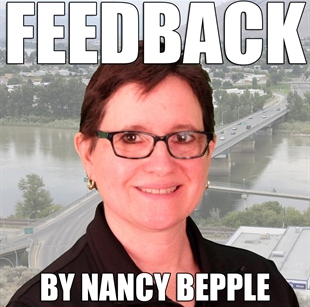
Image Credit: Compilation/Jennifer Stahn
May 29, 2015 - 11:33 AM
There is a divide between rural and urban B.C.
On Thursday this week, the directors of the Thompson-Nicola Regional District strongly endorsed the twinning of the Kinder Morgan pipeline through the region. All but four of the 26 directors, who represent 11 municipalities and 10 rural areas, supported the pipeline expansion. The directors supported the pipeline as the safest way to move petroleum, as opposed to rail tanker cars or trucks.
TNRD directors see an expanded pipeline as a good solution for moving petroleum.
Meanwhile, last month, Metro Vancouver rejected the pipeline expansion. All but two of their board, made up of mayors and councillors from 21 municipalities, one rural area, and one Treaty First Nation, voted against the Kinder Morgan expansion. Metro Vancouver directors do not want the possible risks. They cited the possibility of a fire at a tank farm in Burrard Inlet or an oil spill from tankers carrying the petroleum from pipeline out of the Metro Vancouver port.
Metro Vancouver directors see too much risk from an expanded pipeline.
TNRD directors pragmatically see the current pipeline, which runs down the North Thompson and then through Kamloops and on to Vancouver, has been operating relatively safely for decades. Based on the operations of the current pipeline, they believe a new twinned pipeline would likely be operated in a similar manner.
Metro Vancouver directors looked at worst case scenarios, like a major fire at the Burrard Inlet tank farm, or a large oil spill in local waters. It’s hard to argue that worst case scenarios wouldn’t be very bad. The question is, what is the risk they would happen? Are government regulations strong enough to minimize the risk?
The votes by the TNRD and Metro Vancouver are symbolic. Neither the TNRD nor Metro Vancouver can stop the expansion. The federal government will approve the twinning, not local governments. With the vote the TNRD is signalling support for resource development. Meanwhile, Metro Vancouver is stating they do not see the value of the resource sector.
Rural B.C., and by that I include Kamloops, directly relies on the resource sector for jobs. Whether it is forestry, mining, agriculture or oil and gas, the towns in rural B.C. exist because of the resource sector. Sometimes they are direct jobs, like people who work at New Gold. Sometimes they are indirect jobs, like the 1,000 railroaders who live in Kamloops who haul coal, forest products, ore and other resources down to the Metro Vancouver area.
Maybe Metro Vancouver doesn’t see itself as a resource town. It has high tech jobs, finance jobs, large hospitals, large research universities, and a movie industry. But scratch the surface and you’ll find that Metro Vancouver relies just as much on resources as Kamloops. The largest port on the west coast of Canada, head offices of major mining companies, supply companies for resource companies and more are all located in the Lower Mainland.
If Metro Vancouver doesn’t want to support Kinder Morgan, that’s fine. But then, I’d like to argue that rural B.C. should keep more of the revenue that is generated from the pipeline down the line.
— Nancy Bepple is a recovering politician and local news junkie. She expects she will never recover from her love of the banjo.
News from © iNFOnews, 2015